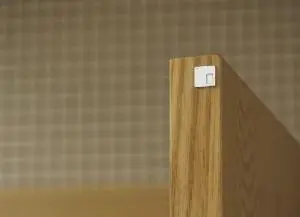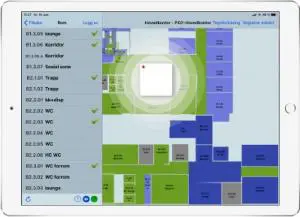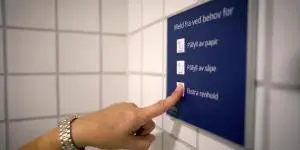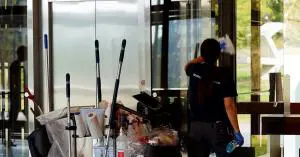Classrooms, hallways, schools, gyms are all being monitored and cleaned based on use.
By implementing CleanPilot, the Norwegian School of Sport Sciences (NIH) reduced cleaning hours, overtime, and supply costs while improving cleaning quality.
— Bengt Johannes Lundberg
OSLO, NORWAY, October 19, 2021 /EINPresswire.com/ — Disruptive Technologies (DT), the creator of the world’s smallest wireless sensors, played a central role in a recent initiative that leveraged smart technology to improve cleaning quality and efficiency at the Norwegian School of Sport Sciences (NIH). As part of Datec’s smart cleaning system CleanPilot, 147 of DT’s tiny wireless sensors were installed across the university campus.NIH sought the help of a smart technology solution to help find efficiencies in what is a massive ongoing effort for the institution. The university is home to 1200 students and 250 employees, 32 of which, including 14 in-house cleaners, administer 72,000 square meters of buildings and sport facilities. Approximately half of NIH’s real estate including offices, toilets, showers, athlete halls, reading halls, swimming halls, and libraries, requires daily cleaning.
DT sensors were installed across the school’s meeting room doors and bathroom stalls which send data to portable tablets that are used by NIH cleaners. The sensors are tiny, cost-effective, and come with an adhesive backing, making it easy to stick sensors to doors, turning any NIH room into a smart room within minutes. Clean Pilot gives cleaners a full overview of all cleaning tasks, access to communication tools, and the ability to mark planned and solved cleaning tasks.
“Clean Pilot is similar to a taxi central, which directs the closest car to a customer. We now do a better job cleaning the facilities more because we are responding to actual need rather than predefined rules,” said Tore Sundby, Manager for Swimming Halls and Cleaning at NIH.
CleanPilot uses data gathered from tiny wireless sensors to:
-Improve cleaning quality and align efforts with actual space use
-Enable users to request cleaning service in toilet rooms or copy machine service in copy rooms
-Reduce overtime spend and use of cleaning resources
-Keep a comfortable air temperature in the swimming halls
By employing CleanPilot, NIH saved 40.5 cleaning hours in sensor-fitted spaces in October 2020 alone. This has led to a corresponding overall reduction in overtime spend and a decrease in the volume of cleaning supplies used.
“The sensors and system are providing us with priceless insights. I know we will install many more sensors and test on several different other use cases, always learning and improving along the way,” said Sundby.
“These results only underscore what we’ve long believed – smart sensor technology can revolutionize everyday processes for the better,” said Bengt Lundberg, CEO of Disruptive Technologies. “I believe once other universities see what we’ve seen, this system will be used on campuses everywhere.”
<
p class=”contact c9″ dir=”auto”>Pippa Boothman
Disruptive Technologies
+47 405 50 789
email us here
Smart Cleaning at a Leading Norwegian University
![]()










